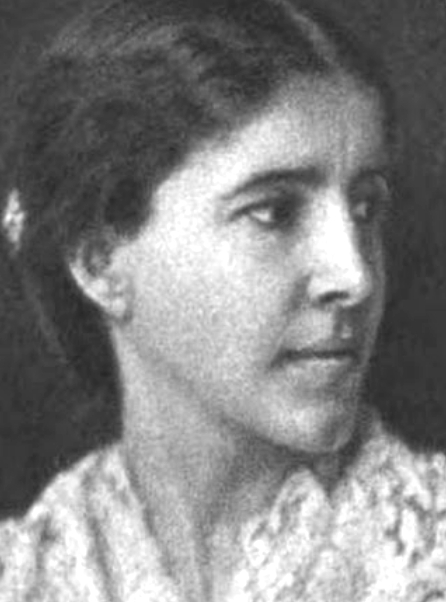On this date in 1860, Charlotte Perkins Gilman was born in Hartford, Conn. A poet, author, editor and theorist, Gilman became one of the most celebrated feminists of her day. Her father, who virtually abandoned the family, was the grandson of evangelist Lyman Beecher. She educated herself, embracing daily exercises and eschewing corsets. She married artist Charles Walter Stetson when she was 23. She suffered paralyzing depression brought on after giving birth in 1885 to her daughter Katherine. It’s detailed in her 1890 classic story “The Yellow Wallpaper.”
After separating from her husband, she launched a career as lecturer, journalist and author. Her collection of poems, In This Our World (1893), includes a poem “To the Preacher,” which jeers: “Preach about yesterday, Preacher! … Preach about the other man, Preacher!/Not about me!” When she attended her first National American Woman Suffrage Association convention in 1896, a sister feminist wrote that Gilman had “originality flashing from her at every turn like light from a diamond.” She defended Elizabeth Cady Stanton‘s Woman’s Bible when the delegation passed a resolution against it. Woman and Economics (1898) made her an international figure.
Her thoughts on race were less than enlightened. In “A Suggestion on the Negro Problem” in the American Journal of Sociology in 1909, she wrote, “We have to consider the unavoidable presence of a large body of aliens, of a race widely dissimilar and in many respects inferior, whose present status is to us a social injury. If we had left them alone in their own country this dissimilarity and inferiority would be, so to speak, none of our business. There are other races, similarly distinguished, whose special standing in racial evolution does not embarrass us; but in this case it does.” According to biographer Cynthia Davis, Gilman once said on a trip to London, “I am an Anglo-Saxon before everything” and claimed that non-British immigrants to America were diluting the nation’s reproductive purity.
Other nonfiction included Concerning Children (1901), Human Work (1904), The Man-Made World; or, Our Adrocentric Culture (1911), and His Religion and Hers: A Study of the Faith of Our Fathers and the Work of Our Mothers (1923). In that work, she called for a religion free of patriarchy and wrote, “One religion after another has accepted and perpetuated man’s original mistake in making a private servant of the mother of the race.” In one of her poems she wrote, “What you think may guide our acts / But it does not alter facts.” She once asked,”What glory was there in an omnipotent being torturing forever a puny little creature who could in no way defend himself?”
She found happiness in her 35-year marriage to George Houghton Gilman and wrote her autobiography, The Living of Charlotte Perkins Gilman, in 1935. That year Gilman, a firm believer in euthanasia, took her own life using chloroform when pain from inoperable breast cancer became unbearable. (D. 1935)

